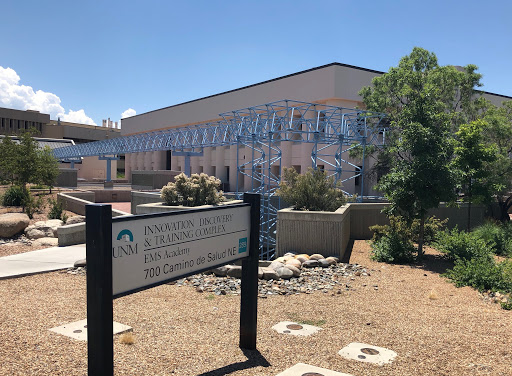Have you found your calling in Preventive Medicine? Focus on the health and wellness not only of the individuals and entire populations.
 505-272-1443
505-272-1443

Public Health and General Preventive Medicine Curriculum
UNM Preventive Medicine residents can tailor their education plan to meet their own interests in Preventive Medicine. This may include content areas such as occupational medicine, addiction medicine, or infectious diseases.
Preventive Medicine Curriculum Basics
Master of Science Public Health (MPH)
A master of Public Health (MPH) is required and completed over two years concurrently with residency training.
- Year 1 includes foundational core courses that includes Epidemiology and Biostatistics.
- Year 2 moves to more independent course work. Additional information is available from the College of Population Health MPH website. The residency program will cover all MPH tuition costs.
Residency Program Rounds
Residency Program Rounds includes journal club and didactic series in such topics as:- Environmental Health
- Clinical Preventive Services
- Behavioral Aspects of Health
- Health Services Management and Administration
- Risk/Hazard Control and Communication
Longitudinal Clinical Preventive Medicine
Longitudinal Clinical Preventive Medicine, with residents completing a minimum of ½ day of clinic per week. Residents spend time in occupational medicine clinics, addiction and substance abuse clinics, NM Department of Health (NM DOH) clinics, and other clinics focused on their own interest.
Cornerstone Projects
These are resident-initiated and focused in any area of preventive medicine. They are unique in the flexibility to accommodate unanticipated educational opportunities. Residents projects have included:
- Participating in a NM Department of Health outbreak investigation
- Assisting in the development of the first Refugee Intake Clinic with the NMDOH Refugee Health Program
- Implementing a hospital newborn sleep sack program
- Developing a proposal to facilitate access to preventive services for American Indian students at a community college.
Practicum Rotations
- New Mexico Department of Health, where residents gain insight into public health activities at the federal, state, tribal, and local level.
- Addiction Medicine, where residents engage in substance abuse clinics, obtain certification for prescribing buprenorphine, participate in harm reduction activities, and telehealth clinics in Integrated Addiction and Psychiatry
- Center for Life and Integrative Medicine, with residents experiencing an integrative medicine clinic that includes Botanicals, Acupuncture, and Lifestyle Medicine.
- Center for Occupational and Environmental Health Promotion, with residents learning clinical occupational medicine, doing environmental exposure assessments, and experiencing a NM OSHA site visitation
- UNM Prevention Research Center, where residents gain an understanding of community-based participatory research and community outreach as they engage in one of the ongoing PRC projects such as Eat Smart Play Hard that utilizes social marketing techniques to help rural, underserved families on Supplemental Nutrition Assistance Program improve their nutritional choices and physical activity to prevent obesity.
- School-Based Health Centers, where residents work with center staff to provide primary care, mental health, referral and prevention services in Albuquerque high schools. Residents projects included student education on reducing adolescent obesity; sex education counseling; and substance abuse prevention education.
- Toxicology and Occupational Diseases, where residents experience private practice in toxicology that includes expert medical testimony in legal cases.
Preventive Medicine Residency
Program Director
Denece Kesler, MD, MPH
Preventative Medicine Residency
Department of Internal Medicine
MSC10-5550
1 University of New Mexico
Albuquerque, NM 87131
Phone: 505-272-1443
Program Coordinator
Raquel Trujillo
ratrullo@salud.unm.edu
